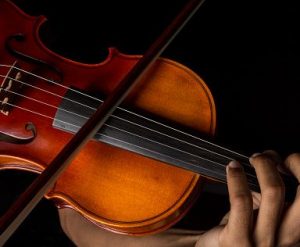Outside a Metro Station in Washington, DC, on a cold January morning in 2007, a man with a violin played six Bach pieces for about 45 minutes. The man playing the Bach pieces was Joshua Bell, playing incognito as part of a social experiment about perception, taste and people’s priorities, organized by the Washington Post.
During the 45 minutes that Joshua Bell was playing approximately 2,000 people went through the station. In all only 6 people stopped to listen. The first was a middle-aged man but he stopped for only a few seconds. Next a young man leaned against the wall to listen but then looked at his watch and started to walk again. A number of small children stopped to look at the violinist but in each case the parent tugged them along hurriedly. Joshua Bell played continuously for 45 minutes. Six people stopped and listened for a short while. About 20 people gave money but continued to walk at their normal pace. The collection came to $32.
After an hour Joshua Bell finished playing and silence took over. No one noticed and no one applauded. What no one knew was that Joshua Bell is recognized as one of the greatest musicians in the world. Outside the Metro he played one of the most intricate pieces of music ever written on a Stradivarius violin worth $3.5 million dollars. Two days before he played to a sold-out theater in Boston where the seats averaged $100 each. He played the same pieces in the theatre in Boston as he played outside the Metro Station.
This experiment raised several questions: In a common-place environment, at an inappropriate hour, do we perceive beauty? If so, do we stop to appreciate it? One possible conclusion reached from this experiment could be this: If we do not have a moment to stop and listen to one of the best musicians in the world, playing some of the finest music ever written, on one of the most beautiful instruments ever made, how many other things are we missing as we rush through life?
(From the Ennis Parish Newsletter – Adapted)
